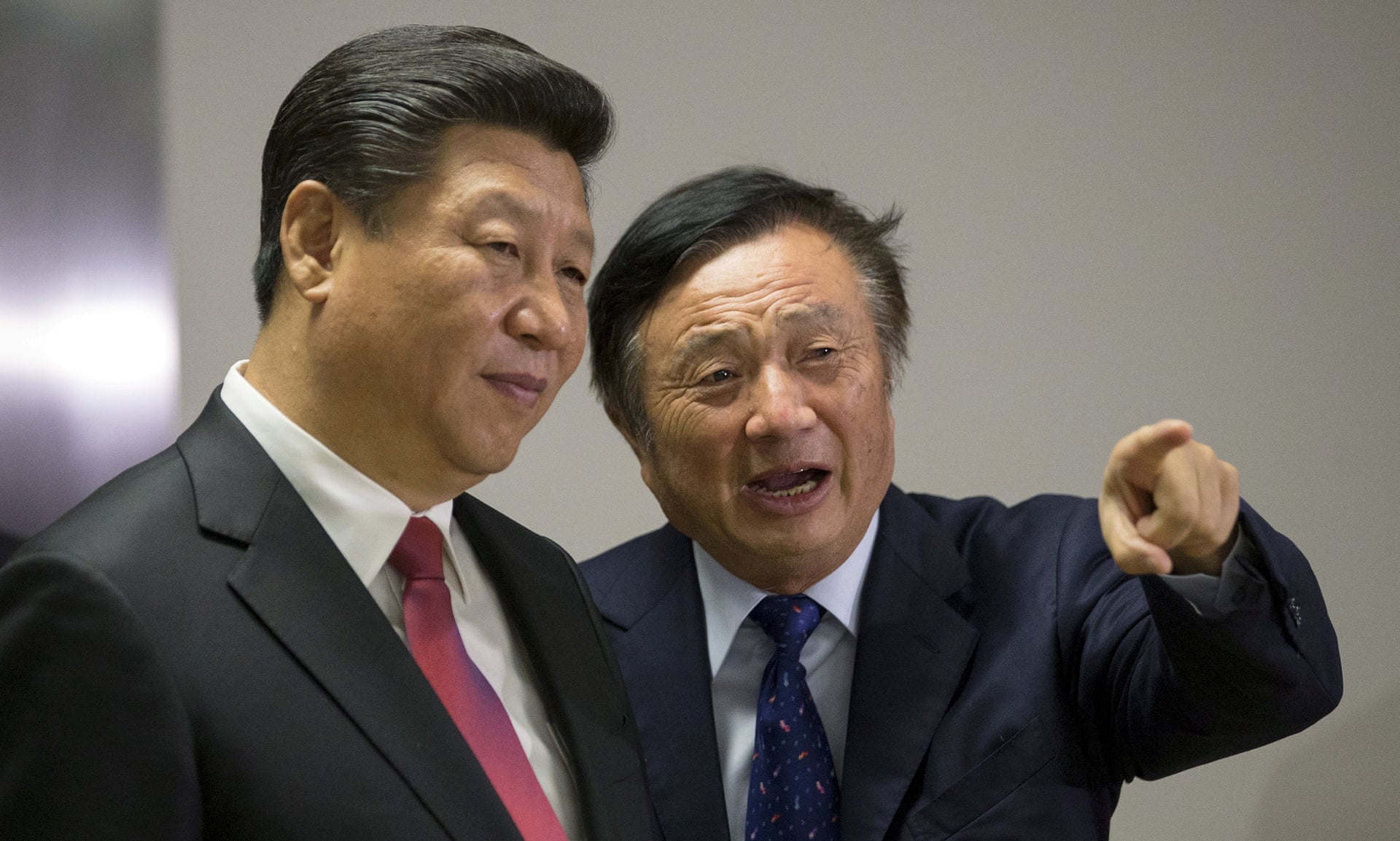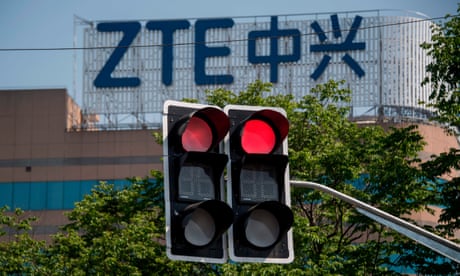Good afternoon.
The charges unsealed today are the result of years of investigative work conducted by the FBI and our law enforcement partners.
Both sets of charges expose Huawei’s brazen and persistent actions to exploit American companies and financial institutions, and to threaten the free and fair global marketplace.
As you can tell from the number and magnitude of charges, Huawei and its senior executives repeatedly refused to respect the laws of the United States and standard international business practices.
As you can tell from the number and magnitude of charges, Huawei and its senior executives repeatedly refused to respect the laws of the United States and standard international business practices.
Huawei also intentionally and systematically sought to steal valuable intellectual property from an American company so it could circumvent hard-earned, time-consuming research and gain an unfair market advantage.
In pursuit of their commercial ambitions, Huawei relied on dishonest business practices that contradict the economic principles that have allowed American companies and the United States to thrive.
In pursuit of their commercial ambitions, Huawei relied on dishonest business practices that contradict the economic principles that have allowed American companies and the United States to thrive.
There is no place for this criminal behavior in our country or any other committed to the rule of law.

FBI Director Christopher Wray, standing with Commerce Secretary Wilbur Ross (left) and Acting Attorney General Matthew Whitaker, remarks on the charges against Huawei during a press conference today at the Department of Justice in Washington, D.C.
The prosperity that drives our economic security is inherently linked to our national security.

FBI Director Christopher Wray, standing with Commerce Secretary Wilbur Ross (left) and Acting Attorney General Matthew Whitaker, remarks on the charges against Huawei during a press conference today at the Department of Justice in Washington, D.C.
The prosperity that drives our economic security is inherently linked to our national security.
And the immense influence that the Chinese government holds over Chinese corporations like Huawei represents a threat to both.
As Americans, we should all be concerned by the potential for any company beholden to a foreign government—especially one that doesn’t share our values—to burrow into the American telecommunications market.
As Americans, we should all be concerned by the potential for any company beholden to a foreign government—especially one that doesn’t share our values—to burrow into the American telecommunications market.
That kind of access could give a foreign government the capacity to maliciously modify or steal information, conduct undetected espionage, or exert pressure or control.
These cases make clear that, as a country, we must consider carefully the risk that companies like Huawei pose if we allow them into our telecommunications infrastructure.
Today’s charges serve as a warning that the FBI does not—and will not—tolerate businesses that violate our laws, obstruct our justice, and jeopardize our national security.
These cases make clear that, as a country, we must consider carefully the risk that companies like Huawei pose if we allow them into our telecommunications infrastructure.
Today’s charges serve as a warning that the FBI does not—and will not—tolerate businesses that violate our laws, obstruct our justice, and jeopardize our national security.
We will not stand idly by while any entity—be it a foreign power or corporation—seeks to criminally or unfairly undermine our country’s place in the world.
This announcement would not have been possible without the dedication and hard work of FBI personnel in our Counterintelligence and Criminal Investigative Divisions, and in our New York, Dallas, and Seattle Field Offices.
This announcement would not have been possible without the dedication and hard work of FBI personnel in our Counterintelligence and Criminal Investigative Divisions, and in our New York, Dallas, and Seattle Field Offices.
I’m proud of their hard work rooting out pervasive criminal behavior by Huawei and its executives.
I’d also like to thank our law enforcement partners in Canada for their continued and invaluable assistance to the United States on law enforcement matters such as this.
And lastly, I want to extend our gratitude to our partners at the Departments of Commerce and Homeland Security for their support in our broader efforts to defend our economic and national security. Thank you.
I’d also like to thank our law enforcement partners in Canada for their continued and invaluable assistance to the United States on law enforcement matters such as this.
And lastly, I want to extend our gratitude to our partners at the Departments of Commerce and Homeland Security for their support in our broader efforts to defend our economic and national security. Thank you.



 Chinese thieves: Xi Jinping, is shown around Huawei’s London offices by the company’s boss, Ren Zhengfei.
Chinese thieves: Xi Jinping, is shown around Huawei’s London offices by the company’s boss, Ren Zhengfei. 